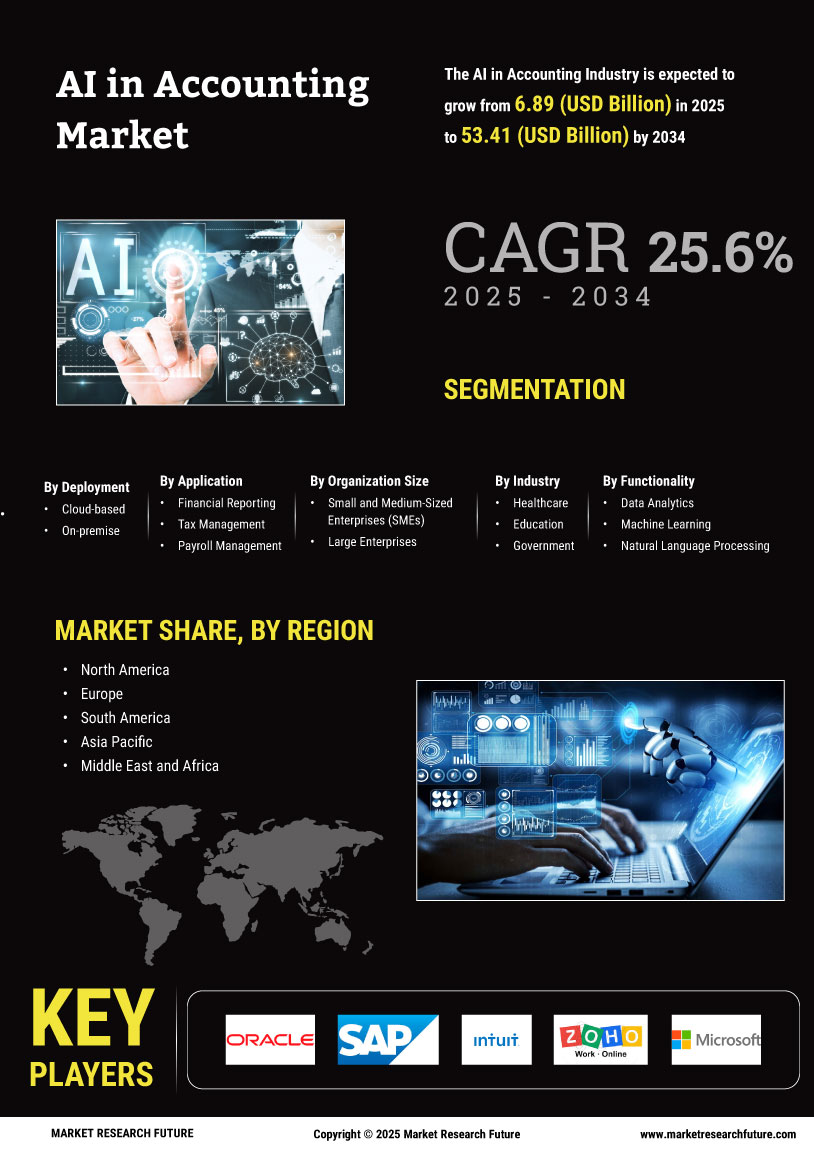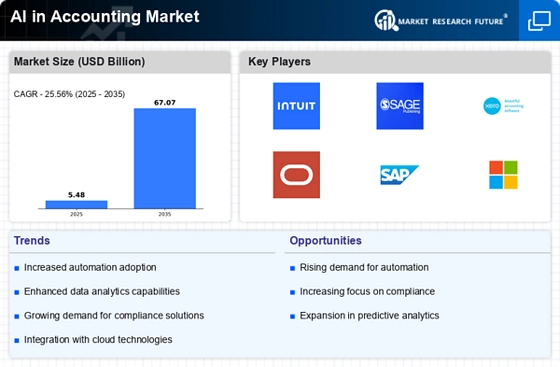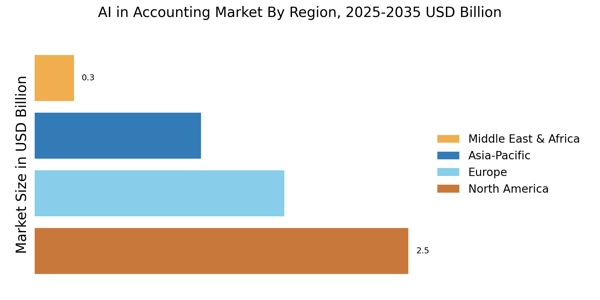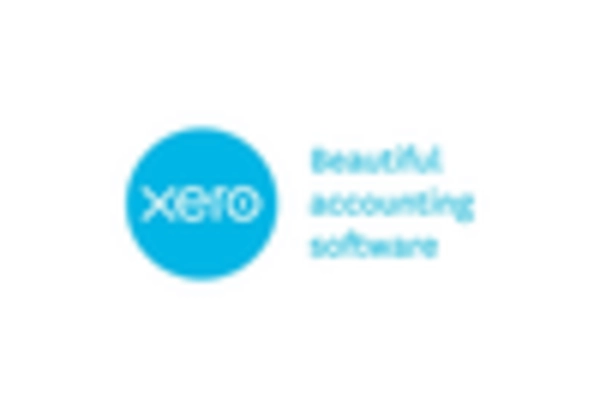Growing Focus on Data Security
Data security concerns are becoming increasingly prominent within the AI in Accounting Market. As organizations adopt AI technologies, they must also address the potential risks associated with data breaches and cyber threats. AI solutions can enhance data security by employing advanced algorithms to detect and respond to suspicious activities in real-time. This proactive approach not only protects sensitive financial information but also builds trust with clients and stakeholders. As the demand for secure accounting practices rises, investments in AI-driven security measures are expected to grow, further propelling the AI in Accounting Market forward.
Integration of Cloud Computing
The integration of cloud computing technologies is transforming the AI in Accounting Market. Cloud-based AI solutions offer scalability, flexibility, and cost-effectiveness, allowing organizations to access advanced accounting tools without significant upfront investments. This shift enables smaller firms to leverage AI capabilities that were previously accessible only to larger enterprises. Furthermore, cloud computing facilitates real-time data access and collaboration among accounting teams, enhancing decision-making processes. As more businesses migrate to cloud platforms, the AI in Accounting Market is likely to witness accelerated growth, with forecasts suggesting a substantial increase in cloud-based AI adoption over the next few years.
Increased Demand for Efficiency
The AI in Accounting Market experiences a notable surge in demand for efficiency as organizations seek to streamline their financial processes. Automation technologies, powered by artificial intelligence, enable firms to reduce manual labor and minimize errors in accounting tasks. According to recent estimates, companies that implement AI-driven solutions can achieve up to a 40% reduction in processing time for financial transactions. This drive for efficiency not only enhances productivity but also allows accounting professionals to focus on strategic decision-making rather than routine tasks. As businesses increasingly recognize the value of operational efficiency, the AI in Accounting Market is poised for substantial growth, with projections indicating a compound annual growth rate of over 20% in the coming years.
Regulatory Compliance Pressures
The AI in Accounting Market faces increasing pressures related to regulatory compliance. As financial regulations become more stringent, organizations are compelled to adopt advanced technologies to ensure adherence. AI solutions can automate compliance processes, reducing the risk of human error and enhancing the accuracy of financial reporting. For instance, AI-driven tools can continuously monitor transactions for compliance with tax laws and financial regulations, thereby mitigating risks associated with non-compliance. This trend is likely to drive investment in AI technologies within the accounting sector, as firms seek to avoid penalties and maintain their reputations in a competitive landscape.
Advancements in Machine Learning
The AI in Accounting Market is significantly influenced by advancements in machine learning technologies. These innovations enable systems to learn from historical data, improving accuracy in forecasting and financial analysis. Machine learning algorithms can analyze vast datasets, identifying patterns and anomalies that human accountants might overlook. This capability is particularly valuable in risk assessment and fraud detection, where timely insights can prevent substantial financial losses. As organizations adopt these sophisticated tools, the demand for machine learning applications within the AI in Accounting Market is expected to rise, potentially leading to a market expansion valued at several billion dollars by the end of the decade.

















